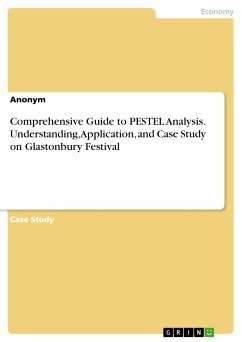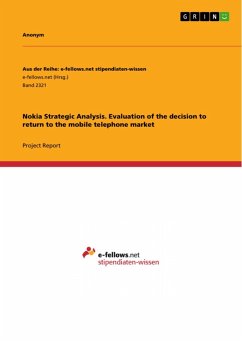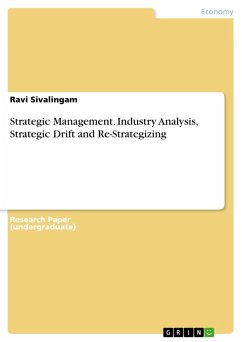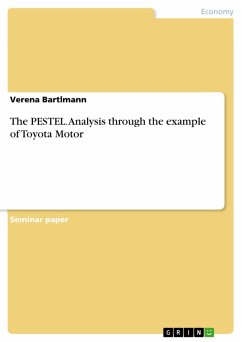Case Study from the year 2023 in the subject Business economics - Organization, grade: 1,7, Lillehammer University College (International Tourism Studies), course: Strategic Management, language: English, abstract: PESTEL analysis is a strategic tool used to assess the external macro-environmental factors that can impact an organization's operations. This text aims to provide a comprehensive overview of the PESTEL analysis, including its definition, significance, application areas, as well as its advantages and disadvantages. For a better understanding of the analysis, this paper takes a closer look at world's famous Glastonbury festival. The whole analysis is carried out and its results are presented in detail. PESTEL analysis is an acronym for Political, Economic, Social, Technological, Environmental, and Legal factors. It is a framework that helps organizations identify and understand the external forces that may influence their business environment. By analyzing these factors, organizations can make informed decisions and develop effective strategies to adapt to changes in the market. The analysis provides valuable insights into the external factors that can affect an organization's performance. It helps organizations anticipate potential opportunities and threats arising from changes in the macro-environment. By understanding these factors, organizations can align their strategies with the prevailing conditions and gain a competitive advantage.
Dieser Download kann aus rechtlichen Gründen nur mit Rechnungsadresse in A, B, BG, CY, CZ, D, DK, EW, E, FIN, F, GR, HR, H, IRL, I, LT, L, LR, M, NL, PL, P, R, S, SLO, SK ausgeliefert werden.









